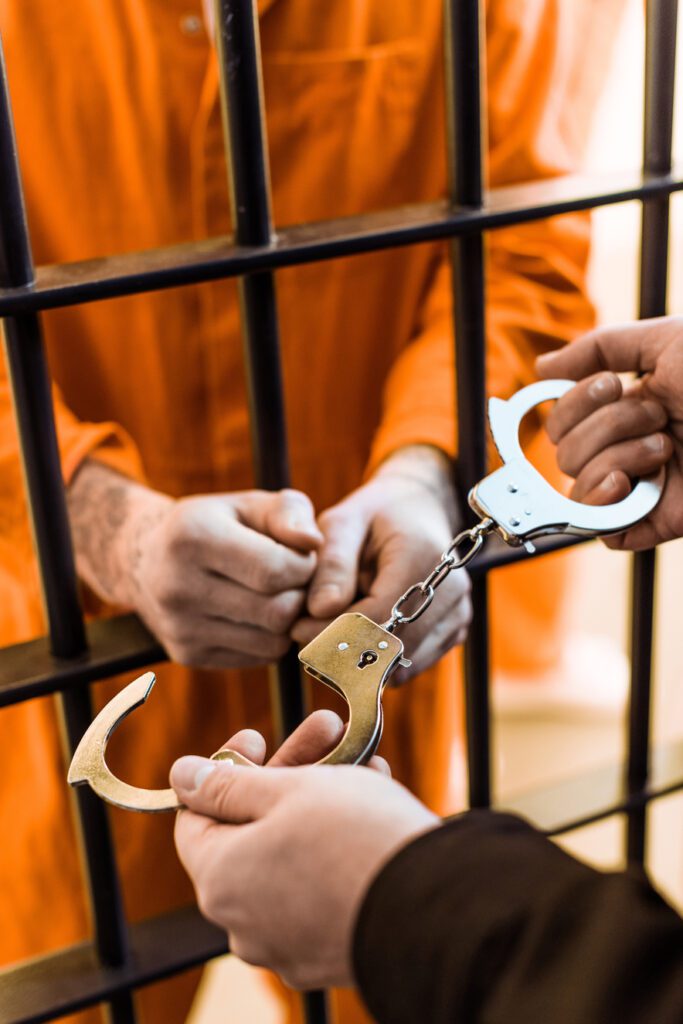Justice Involved
TCOOMMI
West Texas Centers’ TCOOMMI Program assists adults with Serious Mental Illness (SMI) who are currently on probation or parole in the State of Texas. TCOOMMI assists with successful integration back into a person’s community to lead healthy and fulfilling lives. West Texas Centers TCOOMMI team partners with Community Supervision and Corrections Department (CSCD), Parole, state agencies, and other non-profit organization to provide a variety of services.
TCOOMMI Services Include:
- Case Management & Life Skills Training
- Psychiatric Services
- Medication Management
- Benefits Coordination
- Referral & Coordination to low-cost community services:
- Supported Housing & Employment
- Counseling & Group Services
- Substance Use Recovery Services
- Peer & Family Support


Justice Involved
Jail Caseworker Program
What is the Jail Caseworker Program?
The Jail Caseworker program is funding by HHSC Community Mental Health Grant (CMHG) to provide services in our county jails for people with Mental Illness (MI).
What we do?
West Texas Centers has 4 Jail Caseworkers and partners with 4 County Sheriff’s Offices across our service area and are co-located within the jails. The Jail Caseworker identifies anyone with mental illness that is incarcerated in the County Jails and completes assessments to assist in their mental health treatment. The Jail caseworker further works with the person to create a transition plan to assist in healthy and successful integration back into their community.
The Jail Caseworker program is funding by HHSC Community Mental Health Grant (CMHG) to provide services in our county jails for people with Mental Illness (MI).
What we do?
West Texas Centers has 4 Jail Caseworkers and partners with 4 County Sheriff’s Offices across our service area and are co-located within the jails. The Jail Caseworker identifies anyone with mental illness that is incarcerated in the County Jails and completes assessments to assist in their mental health treatment. The Jail caseworker further works with the person to create a transition plan to assist in healthy and successful integration back into their community.
Justice Involved
Mental Health Deputy Program
What is the Mental Health Deputy Program?
Howard, Nolan, and Terry County Sheriff’s Departments and West Texas Centers has partnered to create the Mental Health Deputy Program. This program employs five deputies and one sergeant who specialize in the needs of individuals with serious mental illness (SMI) and to divert them from jail and into the appropriate services based on the situation.
PURPOSE?
To link individuals to services in order to address their mental health needs. In the past several years, county jails have become the largest placement for people with serious mental illness due to petty crimes largely because of the symptoms they are experiencing. We recognize this problem and have implemented the MH Deputy program to identify people who clearly are in a MH crisis and work with West Texas Centers to divert them to appropriate services such as community based services. Our MH Deputies also respond by providing a trauma informed method of transporting people to hospitals for inpatient treatment as needed.
Overall, it costs more for people with mental illness to be incarcerated and unfortunately spend more time in jails compared to others without mental illness. Therefore, it makes more sense to treat people in the community rather than in our county jails.
Training
Our MH deputies receive extensive and specific training to respond to mental health or behavioral health needs in our community.
Our desire is to help our community as a whole by improving the way we work and serve the people in our Counties.
How to get more information or access services:
Sara Crowley; WTC Special Programs (432) 268-3824
24/7 Crisis Hotline 1-800-375-4357
Howard, Nolan, and Terry County Sheriff’s Departments and West Texas Centers has partnered to create the Mental Health Deputy Program. This program employs five deputies and one sergeant who specialize in the needs of individuals with serious mental illness (SMI) and to divert them from jail and into the appropriate services based on the situation.
PURPOSE?
To link individuals to services in order to address their mental health needs. In the past several years, county jails have become the largest placement for people with serious mental illness due to petty crimes largely because of the symptoms they are experiencing. We recognize this problem and have implemented the MH Deputy program to identify people who clearly are in a MH crisis and work with West Texas Centers to divert them to appropriate services such as community based services. Our MH Deputies also respond by providing a trauma informed method of transporting people to hospitals for inpatient treatment as needed.
Overall, it costs more for people with mental illness to be incarcerated and unfortunately spend more time in jails compared to others without mental illness. Therefore, it makes more sense to treat people in the community rather than in our county jails.
Training
Our MH deputies receive extensive and specific training to respond to mental health or behavioral health needs in our community.
Our desire is to help our community as a whole by improving the way we work and serve the people in our Counties.
How to get more information or access services:
Sara Crowley; WTC Special Programs (432) 268-3824
24/7 Crisis Hotline 1-800-375-4357


